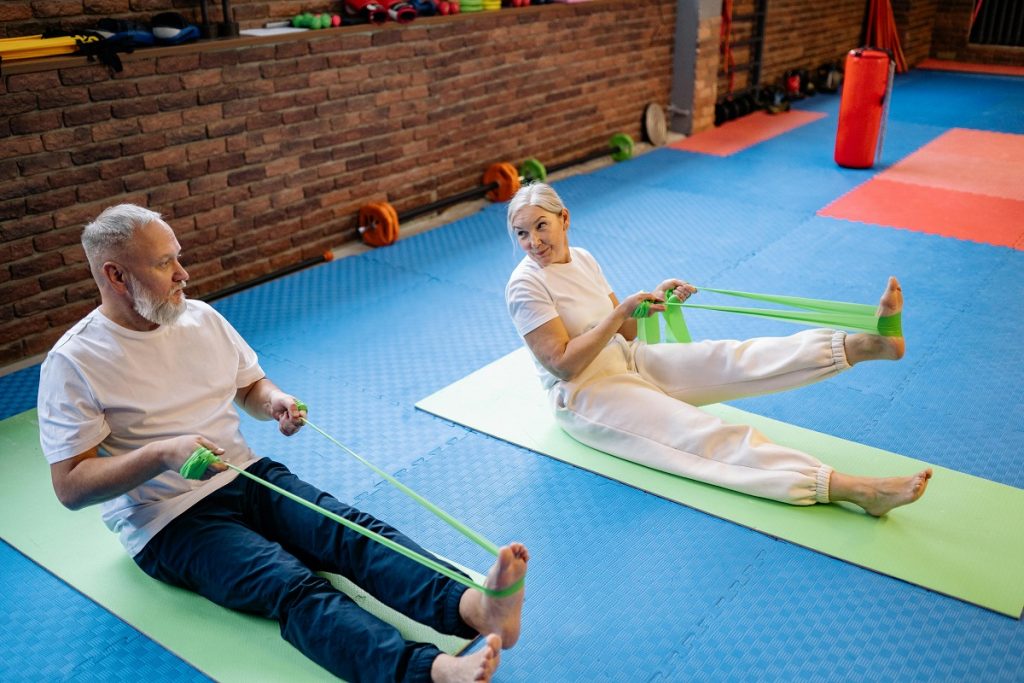
- Maintain seniors’ physical health through exercise, nutrition, safety, and regular healthcare professional consults.
- Support mental health by encouraging socialization, cognitive exercises, and establishing daily routines for structure.
- Provide emotional support by maintaining connections, active listening, and infusing their lives with companionship and hobbies.
- Assisted with financial and estate planning to ensure seniors’ finances and legal affairs reflected their wishes.
- Promote caregiver self-care to maintain emotional balance and ensure the sustainability of quality care.
As people age, it’s essential to ensure that they take care of their physical, mental, and emotional well-being. This is especially crucial for seniors to maintain a high quality of life as they age gracefully.
This guide will explore various ways to support seniors in their journey toward well-being and provide tips on how to care for them effectively.
Physical Health

One of the most important aspects of caring for seniors is ensuring that they are maintaining their physical health. Encouraging regular exercise, proper nutrition, and regular check-ups with healthcare providers can help seniors stay healthy and active. Additionally, ensuring their living environment is safe and accessible can prevent accidents and injuries.
Work with Professionals
It is crucial to work with healthcare professionals when caring for seniors. Regular check-ups and consultations with doctors, nutritionists, and physical therapists can help identify any health concerns or limitations that must be addressed. This collaboration can also help create a personalized care plan that considers the senior’s individual needs. So, you should also consider working with a reliable home healthcare provider. They can provide additional support and assistance in managing the physical health of seniors.
Mental Health
Mental health is just as important as physical health when caring for seniors. Providing opportunities for socialization, engaging in activities that stimulate the mind, and seeking professional help if needed are all essential components of supporting a senior’s mental well-being. It’s also important to be mindful of any signs of depression or anxiety and address them promptly.
Cognitive Exercises
Cognitive exercises are also vital to maintaining mental acuity in seniors. Strategies such as puzzle-solving, memory games, and learning new skills can keep the mind sharp. Supporting seniors in pursuing their hobbies and interests enriches their lives. It can delay the onset of age-related cognitive decline.
Daily Routine
Furthermore, establishing a daily routine can provide a sense of structure and purpose, which is beneficial for mental health. Creating an environment that promotes open communication allows seniors to share their thoughts and feelings, ensuring they feel heard and valued, which can significantly impact their emotional well-being.
Emotional Support

As seniors age, they may face various emotional challenges such as loneliness, grief, or feelings of isolation. Offering emotional support through active listening, spending quality time together, and showing empathy can make a difference in their well-being. Encouraging them to participate in group activities or hobbies they enjoy can also help combat feelings of loneliness.
Maintaining Connections
Keeping seniors connected with family and friends is critical to their emotional support system. Facilitating regular visits, fostering communication through calls or video chats, and involving them in family events can help sustain these essential connections. Besides interpersonal relationships, many seniors find emotional solace in pets’ companionship, which can provide a sense of purpose and unconditional love.
Financial Planning
Another important aspect of caring for seniors is helping them with financial planning. This includes ensuring they have a solid budget, assisting with managing expenses, and discussing long-term care options if needed. It’s crucial to have open conversations about finances early on to prepare both parties for future financial decisions.
Estate Planning and Legal Affairs
In addition to budgeting and expense management, estate planning is a critical component of financial planning for seniors. It’s vital to ensure that wills are up-to-date and that any trusts are established according to the senior’s wishes. Legal documents such as powers of attorney and advanced healthcare directives should also be discussed and finalized. This provides peace of mind to seniors and their families, assuring that their financial and personal affairs are in order according to their preferences and interests. Seeking the expertise of a qualified estate planner or elder law attorney can help navigate these arrangements’ complexities and clarify the best steps moving forward.
Caregiver Self-Care
Finally, it’s essential to remember that caregivers also need support when caring for seniors. Practicing self-care by exercising regularly, maintaining healthy eating habits, and seeking respite care can help prevent burnout. This ensures that caregivers can offer the best care possible to their loved ones.
Maintain Resilience and Emotional Balance
Caring for a loved one can be an enriching experience. Yet, it carries with it a significant amount of responsibility and stress. Therefore, caregivers must embrace a strategy for their well-being to maintain resilience and emotional balance. Setting aside time for personal rest, pursuing individual hobbies, and maintaining social connections outside the caregiving role is vital for a caregiver’s mental health.
Caring for seniors as they age gracefully requires a holistic approach that addresses their physical, mental, emotional, and financial needs. By providing support in these areas and practicing self-care, caregivers can ensure that your senior loved ones can enjoy a high quality of life as they age. Remember that each senior is unique and may require different levels of support – being attentive to their individual needs is critical in providing effective care. Continue to prioritize your seniors’ well-being so they can live fulfilling lives well into their golden years.
